Streamlining Retail Operations
The Crucial Role of Robust ERP in Inventory Management
In the dynamic and fast-paced world of retail, maintaining an efficient back office operation is pivotal to success. Among the myriad of crucial tasks, effective inventory management stands out as a linchpin for businesses to thrive. In this digital era, the integration of a robust Enterprise Resource Planning (ERP) system has become not just advantageous but imperative for retail entities.
The Significance of Inventory Management
Inventory management is the backbone of retail operations. It involves overseeing the flow of goods from suppliers to storage and eventually to customers. Efficient management is essential to avoid overstocking or stockouts, minimize holding costs, and optimize customer satisfaction.
Challenges Without a Robust ERP System
Before the advent of ERP systems, inventory management was a daunting task fraught with challenges:
Manual Errors: Relying on manual tracking led to inaccuracies in stock counts, resulting in discrepancies between recorded and actual inventory.
Lack of Real-time Insights: Traditional methods lacked real-time visibility into stock levels, making it challenging to respond promptly to changing demands.
Limited Scalability: As businesses expanded, managing inventory across multiple locations or channels became increasingly complex without a unified system.
The Role of Robust ERP in Inventory Management
Implementing a robust ERP system designed for retail offers numerous benefits, especially in inventory management:
Centralized Database: An ERP consolidates all inventory-related information into a centralized database, providing a single source of truth for inventory levels, stock movements, and purchasing history across locations.
Real-time Visibility: ERP systems offer real-time visibility into inventory levels, enabling retailers to make data-driven decisions, anticipate demand, and prevent stockouts.
Automation and Accuracy: Automated workflows reduce manual errors, streamline processes such as order fulfillment, and ensure accurate stock counts through barcode scanning and RFID technology.
Demand Forecasting: Advanced ERP functionalities leverage data analytics to forecast demand trends, allowing retailers to optimize inventory levels and reduce excess stock while meeting customer demands.
Multi-channel Integration: For retailers operating across various sales channels—online, brick-and-mortar, mobile—an ERP system integrates these channels, ensuring consistency in inventory management and customer experience.
Efficient Order Fulfillment: ERP streamlines order processing, picking, packing, and shipping, enhancing the efficiency of the fulfillment process and reducing delivery times.
Conclusion
In today’s competitive retail landscape, investing in a robust ERP system tailored for inventory management is no longer an option but a necessity. The efficiency, accuracy, and scalability offered by ERP solutions not only streamline back office operations but also play a pivotal role in optimizing inventory levels, improving customer satisfaction, and driving overall business growth.
By leveraging the power of a sophisticated ERP system, retail businesses can overcome challenges, transform their inventory management processes, and pave the way for sustainable success in the dynamic retail environment.



